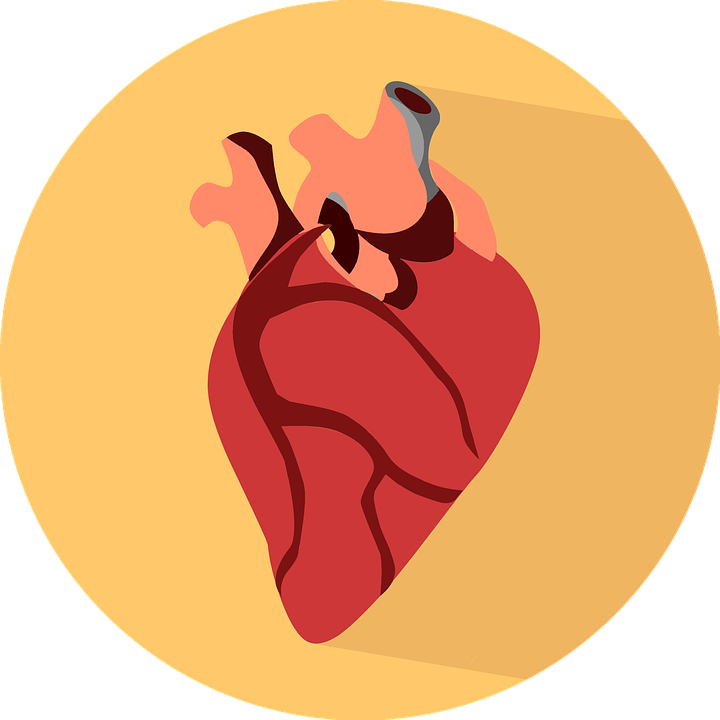The injury itself won’t qualify you for Social Security Disability Insurance (SSDI). The Social Security Administration (SSA) is looking for specific conditions and impairments that keep sufferers from holding gainful employment. If you go to the SSA’s website you will find a list of known cardiac conditions and all the criteria they’re looking for when they determine whether or not to accept your claim. (For the full definition of “cardiovascular impairment” see the last section of this page). While the listed cardiac conditions along with their respective criteria will likely result in an award, just because you may have a condition that is not listed or that doesn’t have all the criteria listed does not mean you cannot file a claim. Conditions with symptoms equally as severe as those listed can also result in an award of benefits.
Cardiac injuries can be caused by physical trauma, diseases, or a heart attack. An acute myocardial infraction can lead to any number of complications, including chronic heart failure and damage to the papillary muscle and arrhythmia. Cardiomyopathy can be congenital or acquired, it causes the heart muscle to enlarge and become thick or rigid. This can have both immediate and long-term effects on heart function, often both. There are also a number of conditions affecting the valves which can be, again, congenital or acquired. These conditions can lead to backflow, stenosis, and atresia. Cardiac trauma is described as either blunt trauma or penetrating trauma. While penetrating trauma often has immediate and deadly results, blunt trauma is under-diagnosed and leads to complications down the road. The American Association for Surgery of Trauma (AAST) estimates that myocardial contusions account for more than 60% of all blunt cardiac injuries. Contusions are a bruising of the heart caused by an impact to the chest.
The heart is one of the best protected organs in the human body. With the sternum and rib cage for protection, it takes a deal of blunt force to hurt the heart. The most common causes of blunt cardiac injury are auto collisions, auto-pedestrian collisions, CPR, and falls from heights that are greater than 20 feet. BCIs can also be caused by crushing injuries, sports injuries, or assaults, involving direct blows to the chest. Less typically, the heart can rupture through a dramatic increase in intracardiac pressure, caused by severe abdominal compression. BCIs often appear as part of more general thoracic trauma. Common concurrent injuries include rib fracture and sternal fracture.
Symptoms of Cardiac Trauma
The majority of patients suffering from cardiac trauma are asymptomatic. Those who do complain may have their symptoms attributed to other, more obvious causes. Severe trauma can result in shock, making it important to rule out other possible causes of hypotension. While BCIs can result in a wide degree of problems, they most commonly manifest in the following ways:
- Pain in front of the ribs or breastbone
- Feeling that your heart is racing
- Light-headedness
- Nausea or vomiting
- Shortness of breath
- Weakness
It is important to inform your doctor about the circumstances of the injury so that the symptoms aren’t attributed to something else; one of the key factors in diagnosing a BCI is examining how the injury occurred. Your doctor will also take into account your symptoms, heart health history and diagnostic tools like an electrocardiogram (ECG) or ultrasound.
Conditions Resulting from Cardiac Injury
The SSA has a very strict definition of what makes a cardiovascular impairment, and because it is so exact, I’ve reprinted it in it’s entirety.
1. What do we mean by a cardiovascular impairment?
a. We mean any disorder that affects the proper functioning of the heart or the circulatory system (that is, arteries, veins, capillaries, and the lymphatic drainage). The disorder can be congenital or acquired.
b. Cardiovascular impairment results from one or more of four consequences of heart disease:
Chronic heart failure or ventricular dysfunction.
Discomfort or pain due to myocardial ischemia, with or without necrosis of heart muscle.
Syncope, or near syncope, due to inadequate cerebral perfusion from any cardiac cause, such as obstruction of flow or disturbance in rhythm or conduction resulting in inadequate cardiac output.
Central cyanosis due to right-to-left shunt, reduced oxygen concentration in the arterial blood, or pulmonary vascular disease.
c. Disorders of the veins or arteries (for example, obstruction, rupture, or aneurysm) may cause impairments of the lower extremities (peripheral vascular disease), the central nervous system, the eyes, the kidneys, and other organs. We will evaluate peripheral vascular disease under 4.11 or 4.12 and impairments of another body system(s) under the listings for that body system(s).
This is why it’s important to start documenting your condition, with your doctor, as soon as possible; the above impairments could be caused by a previous injury or exacerbated by a heart condition. Cardiovascular impairments come from a wide range of causes, and they are often the sum of the effects of several conditions occurring over a period of time. The first step in making your claim, however, will be to contact a knowledgeable Utah-based attorney who can best represent you to the Social Security Administration.
References
http://www.aast.org/BluntCardiacInjury.aspx
http://www.nlm.nih.gov/medlineplus/ency/article/000202.htm
http://circ.ahajournals.org/content/18/3/371.full.pdf+html
http://www.ssa.gov/disability/professionals/bluebook/4.00-Cardiovascular-Adult.